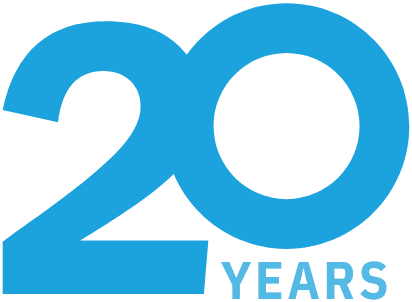When it comes to effective data disposal methods, out of sight and out of mind is not a recommended policy. When confidential data is carelessly thrown into the garbage or recycling bin, companies are at risk for identity theft, fraud and corporate espionage. Privacy law violations can also stem from improper data disposal policies and methods, leading to hefty fines.
Securely disposing of sensitive data – whether in hard copy or stored on hard drives – is essential to ensure that malicious individuals do not access and find personal or corporate data once it has been disposed of.
To help you minimize risks and protect your organization from a serious data breach, here are six data disposal best practices to put into place right now.
Best Practices for Destroying Sensitive Data
1. Create an Information Destruction Policy
An information destruction policy – or a data destruction policy – is a formal, organization-wide, written document that details proper data disposal procedures for physically destroying information that is no longer needed. Instead of throwing records in a trash can or recycling bin, an information destruction policy specifies secure methods of data destruction for employees to follow. This policy should contain what types of information employees must destroy and when.
proper data disposal procedures for physically destroying information that is no longer needed. Instead of throwing records in a trash can or recycling bin, an information destruction policy specifies secure methods of data destruction for employees to follow. This policy should contain what types of information employees must destroy and when.
To remain compliant with the Personal Information Protection and Electronic Documents Act (PIPEDA), which includes rules and regulations regarding how to legally use, store and dispose of data, businesses must have an information destruction policy.
2. Determine Clear Retention Periods
Every business and industry needs to retain data for a certain amount of time; however, there isn’t a one-size-fits-all approach. Some industries have legal requirements to keep information for a certain period, while others do not. Whether businesses are in healthcare, finance, hospitality, government, retail, education or other industries, organizations need to determine a retention schedule with proper data disposal methods to keep business information secure.
3. Implement a Shred-all Policy to Safeguard Sensitive Data
Implementing a shred-all policy for employees dramatically reduces the risk of data breaches and improves compliance since there are clear directives in place. A shred-all policy isn’t only limited to paper records and files. It includes the secure, physical destruction of all forms of confidential data, including computer data found on electronic devices.
4. Physically Destroy Electronic Devices Containing Sensitive Information
Simply erasing, overwriting or wiping data stored on digital devices, such as hard disk drives, backup tapes, optical media or mobile data devices, isn’t enough to ensure that unwanted information is completely deleted. Degaussing, which uses a strong magnetic field to rearrange the structure of a hard drive device, also isn’t a secure method of destruction since data can be reconstructed.
Instead, hard drives must be securely destroyed with a physical method of data destruction to ensure that all parts of the device are shredded into small shards to avoid being pieced together again.
5. Avoid Using an Office Shredder for Data Destruction
Many businesses think that using an in-house office shredder is an economical solution, but the reality is that this time-consuming destruction method costs companies in productivity, security and space. When staff are responsible for data disposal, they are sidelined from revenue-generating activities and their core job responsibilities to carry out destruction. Office shredders also take up valuable space, break down often and require maintenance, which adds up over time.
Security isn’t guaranteed either. Most office shredders only destroy paper into thin strips, which can be reconstructed and used for illegal purposes. Most importantly, this data disposal method is not compliant with the PIPEDA.
6. Prioritize Privacy Law Compliance
In addition to requiring an information disposal policy and using approved methods of secure disposal, the PIPEDA requires organizations to be able to prove that business documents, hard drive devices and other electronic data have been destroyed in compliance with industry standards.
The way to achieve this is having a Certificate of Destruction, which is a formal document that contains detailed information about the destruction of materials to ensure that the shredding process was done in compliance with privacy laws. The only way to obtain a Certificate of Destruction is by outsourcing proper disposal to a certified provider to confirm that files and data are properly destroyed according to privacy laws.
The Most Secure Way for Disposing Confidential Hard Copy Information
The most secure way to completely destroy sensitive data is to contact an on-site shredding provider to destroy and properly dispose of confidential information. Choosing a mobile shredding service protects your organization’s data since it is physically destroyed in an industrial paper shredder truck on your premises while you watch.
It’s also the most secure way to shred sensitive data since documents are destroyed into small crosscut pieces and mixed with materials from other shredding customers to ensure that confidential data can never be reconstructed or fall into the wrong hands.
If you have other types of media, such as backup tapes, CDs, computer hard drives, recalled products or damaged goods, a certified service provider can shred these items for you on the same visit.
Choose The Best Data Destruction Method to Dispose of Sensitive Data For Your Organization
Blue-Pencil provides secure on-site shredding services within the Greater Toronto Area and Southern Ontario to help you maintain your company’s data security.
We offer one-time and reoccurring shredding for all of your needs, whether it is destroying old documents and files, SSD drives, memory cards, non-paper materials or unwanted products. We also provide a Certificate of Destruction upon completion of every shredding service to guarantee that your sensitive business data and electronic media were destroyed and recycled according to privacy laws.
Contact Blue-Pencil For a Free Data Destruction Quote
To find out how your business can benefit from our NAID AAA Certified data destruction methods or for more information about proper data disposal and our secure process, contact our customer service team to access your free quote.

